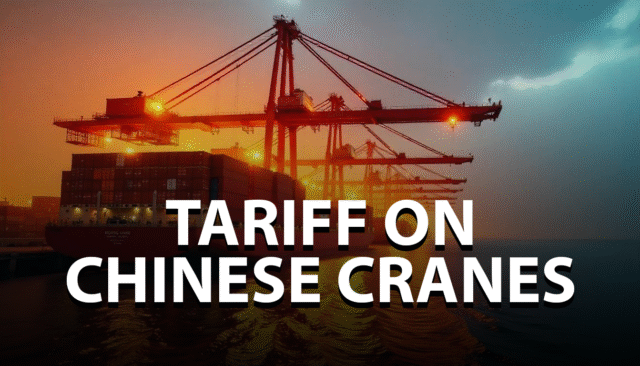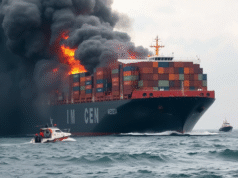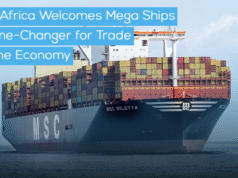What Could Happen If the U.S. Adds 100% Tariffs on Chinese Cranes?
The U.S. government is thinking about adding a 100% tariff on Chinese-made cranes. These are the huge machines that help load and unload containers at ports. But there’s a problem: no U.S. company currently makes these cranes.
Why Are These Tariffs Being Proposed?
The proposal comes from the U.S. Trade Representative’s office. It’s part of a larger push to grow American manufacturing. But port leaders like Gene Seroka, Executive Director of the Port of Los Angeles, say there’s no local industry ready to take over.
He explained that building up a U.S. crane industry could take 10 years. That’s because you’d need new factories, trained workers, and materials like steel and aluminum — which are already more expensive due to other tariffs.
Are There Any Alternatives to Chinese Cranes?
Some crane buyers could look to Europe or Japan. But Seroka says options are limited and those cranes take time to order and install. That delay adds pressure on U.S. ports, which already rely heavily on Chinese-built machines.
Crane shortages could also affect how fast goods move in and out of the U.S. These machines are essential for transferring containers between ships, trucks, and trains.
How Would This Affect Trade and Consumers?
Adding a big tariff on Chinese cranes may sound like a step toward U.S. growth. But it might actually slow things down. Port operators would face higher costs, which would likely be passed on to companies shipping goods — and eventually to everyday shoppers.
Seroka said while cranes last for around 20 years, the real issue is losing choice and facing higher prices in the short term.
William Brauner, a freight expert, agreed. He pointed out that terminal operators will try to recover those new costs. That means you might end up paying more for imported products, without even realizing it.
Are There National Security Concerns?
Yes, there are. Some Chinese cranes can be monitored or controlled remotely, which has raised alarms about national security. Both the Trump and Biden administrations have talked about increasing domestic production for this reason.
But right now, Seroka says there are simply not enough U.S. companies ready to step in. That’s why the American Association of Port Authorities is asking the government to consider tax credits for local production instead of high tariffs.
What’s Next?
The U.S. Trade Representative is planning to hold a public hearing on May 19. People and businesses will get a chance to share their views on the proposed tariffs.
In the meantime, ports like Los Angeles — which has about 45 Chinese-made cranes out of 86 total — are watching closely. Maintenance on those machines could also get more expensive under the new rules.
Some hope local companies can fill the gap by offering maintenance and smaller equipment. But for now, the changes could mean higher costs across the board.
News originally published by gCaptain








